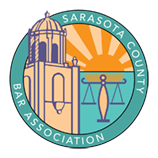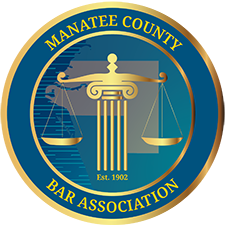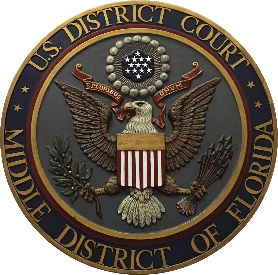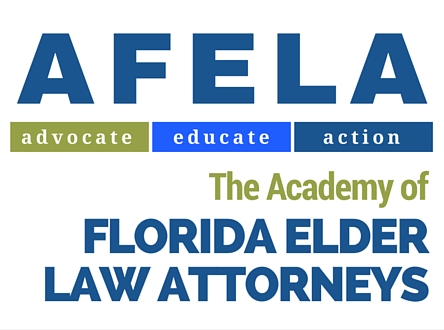Medicaid Planning
Sarasota Medicaid Planning Attorney
Our firm is dedicated to assisting families in qualifying their loved ones for Medicaid payment of their nursing home expenses. Qualifying for Medicaid coverage for nursing home expenses is a detailed, time-consuming process. We offer assistance to families who currently have a loved one in a nursing home, OR who are contemplating that nursing home care may soon become necessary.
Many families facing the situation of long-term care do not seek out or are unable to find competent advisors. Many professionals have very little experience or know-how in these areas. Many clients, who we have helped with immediate nursing home situations, have told us that when they sought advice elsewhere they are told there is nothing that can be done.
BUT THIS IS NOT THE ANSWER
Financial planners are trained to increase portfolios, CPA’s and Tax Accountants are trained to minimize income and estate taxes, these professionals are not trained to preserve and protect your financial assets from catastrophic costs. Knowledgeable legal professionals are needed to walk families through the maze of selecting the best appropriate care facility or nursing home, filling out the admission paperwork, and developing a structured plan the pay for the care.
We provide a wide range of services beginning with the pre-planning process, initial preparation of the Medicaid application all the way up to and including the annual review process.
What is the Institutional Care Program (ICP)
The Institutional Care Program (ICP) is a Medicaid program that helps people in nursing facilities pay for the cost of their care plus provides general medical coverage.
ICP eligibility in Florida is determined by the Department of Children and Families (DCF). In a nursing facility, patients pay for services through private insurance or self-pay, through Medicare or Medicaid.
The level of care is either skilled or intermediate. Medicaid can pay for intermediate & skilled care for an unlimited time period.
Who may apply
The individual or their designated representative may apply. If there is a legal guardian, the guardian must apply unless the legal guardian fails to cooperate or cannot be located.
Eligibility requirements include:
- Be 65 or older or disabled as determined by Social Security criteria.
- Be a U.S. citizen or qualified non-citizen.
- Be a Florida resident.
- Have a Social Security number or apply for one.
- File for any other benefits for which you may be eligible (i.e. pensions, retirement, disability benefits, etc).
- Tell DCF about other third party medical coverage (i.e. health insurance).
- Be determined to be in need of nursing facility services.
- Be placed in a nursing home that participates in the Medicaid program.
- Have assets and income within the program limit.
How Much Does Medicaid Pay
Medicaid pays the difference between how much the patient pays (patient responsibility) and what the nursing facility charges under Medicaid.
Special ICP Policies that Apply to Spouses
Assets and income are considered differently for married individuals when one spouse is in a nursing home and the other is in the community.
Changes
Changes need to be reported as soon as the change is known. These may include changes in income or assets, insurance coverage, or leaving the facility.
Reviews
Annual reviews are required for continued eligibility. A notice will be mailed to the patient, designated representative, or legal guardian yearly.
ASSETS:
An applicant, whether single or married, may have no more than $2,000 in “countable” assets in his or her name. Any individual who has the legal ability to dispose of an asset is considered the owner of the asset. “Countable” assets generally include all belongings except for certain “excluded” assets. If the applicant is married, the Community Spouse (healthy spouse) can keep a Spousal Resource Allowance (Assets) of $128,640.00 (2020).
Some Types of Assets that DO Count:
1. Real property, other than home.
2. Bank accounts, Certificates of Deposit (CDs), money market funds.
3. Stocks or bonds.
4. Trusts.
5. Life insurance cash value if the face value of the policies owned on any insured individual totals more than $2500 ($1500 for SSI recipients).
Some Types of Assets that DO NOT Count:
1. Applicant’s principal residence, up to $525,000
2. One vehicle
3. Revocable burial funds up to $2500 (or $1500 for SSI recipients).
4. An irrevocable burial contract for the applicant, in any amount, is exempt, or an individual may also set aside up to $2,500 of funds for burial expenses and these funds will be exempt.
5. Life insurance, if the total face value of all policies owned by the individual for any one insured does not exceed $2500 ($1500 for SSI recipients).
6. Assets protected under a qualified long term care insurance policy.
7. Other assets that are considered “unavailable” for one reason or another.
INCOME:
An applicant has a responsibility to contribute to the cost of the care. This Patient Responsibility (co-pay) is paid monthly from the income of the applicant. All of the applicants gross income, less certain deductions (a $130.00 personal needs allowance), must be paid to the nursing home.
1. The income limit ($2,349 for 2020) for ICP is three times the SSI limit and changes yearly.
2. The total gross monthly income that belongs to the nursing home individual is considered in determining eligibility for ICP. Some types of income include, but are not limited to:
A. Social Security
B. Veterans Administration Benefits
C. Pensions
D. Income from mortgages
E. Contributions
3. Some deductions withheld from gross income MUST be included as income. For example:
A. premiums for supplemental medical insurance (Medicare) from a Title II (Social Security) benefit;
B. premiums for health insurance or hospitalization;
C. premiums for life insurance;
D. Federal & State income taxes;
E. Social Security taxes.
4. An individual is ineligible for nursing home Medicaid assistance if their monthly income exceeds a certain ceiling, ($2,349 for 2020). Applicants facing this predicament are able, in most cases, to establish an irrevocable trust, referred to as a “Qualified Income Trust” or “Miller Trust” that allows them to overcome the income limitation.
The Irrevocable Qualified Income Trust (a) Must be irrevocable; (b) be comprised of income only; and (c) designate that the State will receive any funds remaining in the trust upon the death of the recipient, up to the amount of Medicaid payments paid on behalf of the individual.
ASSET PLANNING TECHNIQUES
Asset Planning Technique examples to obtain eligibility include, but are not limited to:
A. Spend Down
B. Rental Property
C. Retransfer
D. Mortgage
E. Spousal Refusal/Just Say No
F. Personal Service Contract
Nursing Home Costs Differ By State
If you are looking for quality nursing homes in Illinois, expect to pay a different amount than you would in Arizona, or even Florida. In large part, fees are dependent of real estate in the area, after all, you’re paying for housing as well as senior care needs. That means that states, and particularly, cities with high costs of living will also see higher nursing home costs than those in less expensive areas.
The material above represents general legal advice. Since the law is continually changing, some provisions may, or may not apply to you. Some provisions may have exceptions you need to be aware of. It is always best to consult an attorney about your legal rights and responsibilities regarding your particular case.
Please contact us to discuss any specific situation or needs you may have to see how we may be able to assist in reaching a resolution. We offer a free thirty (30) minute consultation to see if we can help.
Learn More about the Statewide Medicaid Managed Care (SMMC) Managed Medical Assistance (MMA) program?






